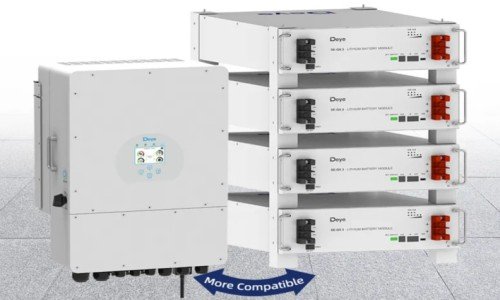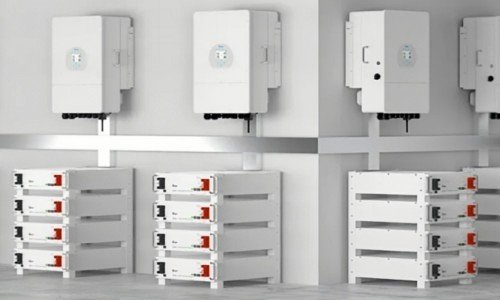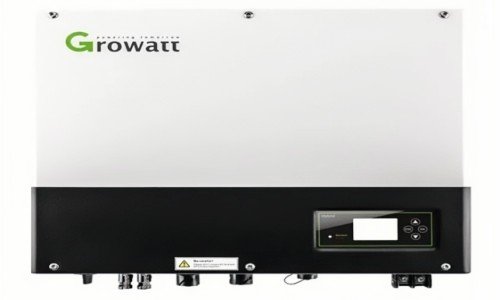
Inverter and battery compatibility
When it comes to choosing the right hybrid inverter for your solar energy system, both Deye and Growatt are popular options that offer advanced features, reliable performance, and solid warranties. However, choosing between the two can be challenging, as each brand has its strengths.
In this article, we will compare Deye and Growatt hybrid inverters across several important factors such as quality, cost-effectiveness, performance in different environments, and key features.
Deye and Growatt hybrid inverters each bring unique advantages to the table. Let’s dive into a comparison to help you decide which one is the right choice for your energy needs.
How Does Deye Compare to Growatt in Quality and Durability?
When it comes to quality and durability, both Deye and Growatt are known for producing reliable hybrid inverters that can stand up to the demands of solar energy systems. However, there are some key differences between the two that can help determine which one is more suitable for your needs.
Quality and durability are crucial when investing in a hybrid inverter. Let’s look at how Deye and Growatt stack up in these areas.
Deye vs Growatt: Quality and Durability
| Inverter Model | Deye SUN-3.6/5/6K-SG03LP1-EU | Growatt 5000TL-X |
|---|---|---|
| Efficiency | 98.4% | 98.2% |
| Max Output Power | 6kW | 5kW |
| IP Rating | IP65 (High weather resistance) | IP65 |
| Operating Temp. Range | -25°C to +60°C | -25°C to +60°C |
| Warranty | 5–10 years | 5 years |
| Weight | 13 kg | 11 kg |
-
Build Quality:
- Deye Inverters: Known for their robust construction, Deye hybrid inverters are designed to withstand harsh conditions. They use high-quality components that are rigorously tested for safety and performance. Their durable design ensures longevity, making them ideal for both residential and commercial systems.
- Growatt Inverters: Growatt inverters are also well-built, offering reliable performance. They are generally known for their lightweight design and ease of installation. Growatt has a reputation for providing good-quality inverters, but some models may not be as rugged as Deye, especially in extreme weather conditions.
-
Weather Resistance:
- Deye: With higher IP (Ingress Protection) ratings in most models, Deye inverters are better suited for installations in environments with extreme temperatures or high humidity. Their durability ensures they perform well in both residential and commercial solar applications. Learn more about the IP rating1 and its importance for weather resistance.
- Growatt: Growatt inverters are designed to handle a wide range of weather conditions, but they may not have the same level of protection as Deye inverters when it comes to extreme environmental challenges. They are generally better suited for mild climates.
-
Warranty:
- Deye: Deye offers a solid warranty on their hybrid inverters, typically providing 5 to 10 years, depending on the model. Their warranty period reflects the confidence they have in the durability of their products. Check out the typical warranty2 for hybrid inverters.
- Growatt: Growatt typically offers a 5-year warranty as well, although some models may offer shorter periods, depending on the region and product type.
-
Temperature Performance:
- Deye: Deye inverters are designed to perform efficiently in environments with extreme temperatures. This makes them suitable for installations in harsh climates. Discover how temperature impacts inverter performance3.
- Growatt: While Growatt inverters can operate in various conditions, their performance may not be as optimal in environments with very high or very low temperatures.
Conclusion: Deye generally wins in terms of superior durability and weather resistance, especially for harsher environments. However, Growatt inverters still offer great build quality for mild climates.
Which Offers Better Value: Deye or Growatt for Cost-Effectiveness?
Cost is always a major consideration when choosing a hybrid inverter, as it can impact the overall return on investment (ROI) of your solar system. Both Deye and Growatt offer affordable inverters, but the long-term value can differ based on efficiency, performance, and warranty.
Inverters should provide excellent value not just in the initial purchase price, but over the lifespan of the system. Let’s compare the cost-effectiveness of Deye and Growatt inverters.

Complete solar system
Deye vs Growatt: Cost-Effectiveness
| Inverter Model | Deye SUN-3.6/5/6K-SG03LP1-EU | Growatt 5000TL-X |
|---|---|---|
| Initial Price | $1,200 – $1,500 | $1,000 – $1,200 |
| Efficiency | 98.4% | 98.2% |
| Annual Energy Production | 4,000 – 6,000 kWh | 3,800 – 5,500 kWh |
| Payback Period | 5–6 years | 4–6 years |
-
Initial Price:
- Deye: Deye inverters tend to be priced higher than Growatt inverters, reflecting their superior durability and higher-end features. While the upfront cost might be more, Deye inverters often provide higher efficiency and longer lifespans, which can result in better long-term savings.
- Growatt: Growatt inverters are typically more affordable, offering a good entry-level price point for those with a smaller budget. Growatt is known for delivering good performance at a lower cost, making it a popular choice for residential systems where budget is a concern.
-
Long-Term Value:
- Deye: Given Deye's superior build quality and weather resistance, the long-term value is often higher. You’re likely to experience fewer issues over time, and with higher efficiency, you can expect more reliable energy production and better energy savings.
- Growatt: While Growatt inverters offer a good initial price, their lower cost sometimes means that the overall value in terms of lifespan and performance could be lower, especially in harsh environments or with larger systems.
-
Operational Efficiency:
- Deye: Deye inverters typically have higher efficiency rates, with some models reaching up to 98.4% efficiency. This translates to more energy being converted into usable electricity, which maximizes the ROI on your solar investment. Find out how efficiency4 affects solar inverters.
- Growatt: Growatt also offers high-efficiency inverters, but typically their efficiency is slightly lower than Deye's, around 97% to 98%. While still competitive, this difference in efficiency could add up over the long term.
Conclusion: Growatt offers a more affordable initial investment, but Deye inverters may provide better long-term value due to higher efficiency and superior durability.
Which Offers Better Value: Deye or Growatt for Cost-Effectiveness?
Cost is always a major consideration when choosing a hybrid inverter, as it can impact the overall return on investment (ROI) of your solar system. Both Deye and Growatt offer affordable inverters, but the long-term value can differ based on efficiency, performance, and warranty.
Inverters should provide excellent value not just in the initial purchase price, but over the lifespan of the system. Let’s compare the cost-effectiveness of Deye and Growatt inverters.

Solar energy system setup
Deye vs Growatt: Cost-Effectiveness
| Inverter Model | Deye SUN-3.6/5/6K-SG03LP1-EU | Growatt 5000TL-X |
|---|---|---|
| Initial Price | $1,200 – $1,500 | $1,000 – $1,200 |
| Efficiency | 98.4% | 98.2% |
| Annual Energy Production | 4,000 – 6,000 kWh | 3,800 – 5,500 kWh |
| Payback Period | 5–6 years | 4–6 years |
-
Initial Price:
- Deye: Deye inverters tend to be priced higher than Growatt inverters, reflecting their superior durability and higher-end features. While the upfront cost might be more, Deye inverters often provide higher efficiency and longer lifespans, which can result in better long-term savings.
- Growatt: Growatt inverters are typically more affordable, offering a good entry-level price point for those with a smaller budget. Growatt is known for delivering good performance at a lower cost, making it a popular choice for residential systems where budget is a concern.
-
Long-Term Value:
- Deye: Given Deye's superior build quality and weather resistance, the long-term value is often higher. You’re likely to experience fewer issues over time, and with higher efficiency, you can expect more reliable energy production and better energy savings.
- Growatt: While Growatt inverters offer a good initial price, their lower cost sometimes means that the overall value in terms of lifespan and performance could be lower, especially in harsh environments or with larger systems.
-
Operational Efficiency:
- Deye: Deye inverters typically have higher efficiency rates, with some models reaching up to 98.4% efficiency. This translates to more energy being converted into usable electricity, which maximizes the ROI on your solar investment.
- Growatt: Growatt also offers high-efficiency inverters, but typically their efficiency is slightly lower than Deye's, around 97% to 98%. While still competitive, this difference in efficiency could add up over the long term.
Conclusion: Growatt offers a more affordable initial investment, but Deye inverters may provide better long-term value due to higher efficiency and superior durability.
How Do Deye and Growatt Inverters Perform in Different Environments?
The performance of hybrid inverters can vary significantly depending on the environmental conditions5. Understanding how Deye and Growatt inverters perform in different environments can help you choose the best one for your installation location.
Choosing the right inverter for your environment ensures that your system performs optimally year-round. Let’s compare how Deye and Growatt inverters handle different environmental conditions.
Performance in Different Environments
| Factor | Deye Inverters | Growatt Inverters |
|---|---|---|
| Extreme Temperatures | Suitable for both hot and cold climates | Performs well in moderate climates |
| Humidity & Salt | Highly resistant to moisture and salt | Performs well in mild humidity levels |
| Dust & Pollution | Higher IP ratings, resistant to dust | Lower IP ratings, requires more maintenance in dusty environments |
-
Extreme Temperatures:
- Deye: Deye inverters are designed to handle extreme temperature ranges. With high IP ratings and robust internal components, they perform well in areas with very hot or cold climates.
- Growatt: Growatt inverters perform well in moderate temperature conditions but may face challenges in extreme heat or cold. They are better suited for temperate climates.
-
Humidity and Coastal Areas:
- Deye: Deye inverters are built to resist high humidity levels, making them ideal for coastal areas where salt air and moisture can be damaging to equipment. The salt resistance6 is a significant factor in maintaining the lifespan of the inverter.
- Growatt: While Growatt inverters can handle moderate humidity, they may not be as well-suited for coastal or high-humidity environments as Deye.
-
Dust and Pollution:
- Deye: Deye’s high IP ratings make them more resistant to dust and dirt, which is particularly useful in areas with high pollution or desert-like environments.
- Growatt: Growatt inverters can handle some dust, but they may require more frequent cleaning and maintenance in very dusty environments compared to Deye.
Conclusion: Deye inverters are better suited for harsh environmental conditions, including extreme temperatures, high humidity, and dusty areas. Growatt inverters are best for milder climates.
What Key Features Should You Look for in Deye vs Growatt Hybrid Inverters?
When choosing between Deye and Growatt hybrid inverters, it’s important to consider the features that matter most to you—whether that’s efficiency, scalability, ease of installation, or smart features.
Key features can significantly influence the performance and longevity of your inverter. Let’s look at the most important features in both Deye and Growatt inverters.

Growatt solar inverter
Key Features to Compare
| Feature | Deye Hybrid Inverters | Growatt Hybrid Inverters |
|---|---|---|
| Efficiency | 98.4% to 99% | 97% to 98% |
| Battery Compatibility | LiFePO47, LFP | LiFePO4, LFP |
| Monitoring | Advanced real-time monitoring via apps/web portal | Real-time monitoring via apps/web portal |
| IP Rating | IP65 | IP65 |
| Scalability | Highly scalable for large systems | Suitable for residential and small systems |
| Warranty | 5–10 years | 5 years |
Conclusion: Both Deye and Growatt offer essential features like high efficiency, battery compatibility, and smart monitoring, but Deye stands out in terms of scalability, higher efficiency, and better performance in harsh environments.
Conclusion
Choosing between Deye and Growatt hybrid inverters ultimately depends on your specific needs and priorities. If you’re looking for long-term durability, higher efficiency, and better performance in extreme environments, Deye may be the better choice. However, if you have a more limited budget or need a cost-effective solution, Growatt offers excellent value for money.
Consider your system size, environmental conditions, and desired features to make the best decision for your solar energy needs.
-
Find out how the IP (Ingress Protection) rating ensures that inverters can withstand environmental factors like dust, water, and extreme temperatures. ↩
-
This resource explains the warranty periods offered by various hybrid inverter manufacturers and what they typically cover. ↩
-
Learn how extreme temperatures and weather conditions can affect inverter performance and how manufacturers design inverters to handle such challenges. ↩
-
This article explains the factors that affect hybrid solar inverter efficiency, including design and technology that impact the conversion of solar energy into usable electricity. ↩
-
Click to understand how environmental conditions like temperature, humidity, and dust can impact the performance of solar equipment. ↩
-
Understand why salt resistance is important for inverters used in coastal areas and how it helps prolong the lifespan of the inverter. ↩
-
Learn about LiFePO4 batteries and their compatibility with hybrid inverters to ensure optimal performance for your energy storage needs. ↩



